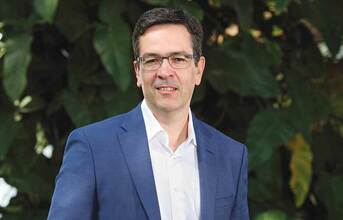
The new Mobility Solutions division will witness over 600 associates coming together to develop and sell digital mobility services. These
include vehicle sharing, ridesharing and connectivity-based services for car drivers. Next year, we plan to focus on adopting a functional and technical approach to the upskilling process for the mobility market. Bosch has also set up a project house, which is working on prototype development and system integration to feasibly get EVs and electromobility solutions on Indian streets. The project house specifically addresses Indian electrification projects."
Change is inevitable
As the norms are changing, manufacturers have to align its processes accordingly. Explaining on how Bosch is adapting to these changes Roehrl says, "The Indian automotive industry is undergoing massive change right now owing to the changing of emission norms and talks about EVs, alternative powertrains and so on. Bosch believes that there should be an adequate transfer period for the adoption of e-vehicles and its supportive infrastructure. A fine balance in the transition of the automotive industry to EVs must be achieved for maintaining enough employment in the industry whilst maintaining profitability. The aim is to make commutation as emissions-free, stress-free and accident-free as possible. We are actively involved in the development and manufacturing of advanced systems that contribute to each of these expectations. Also, we are making considerable upfront investments in the form of capital expenditure, high spending on R&D, opening of new markets and on internal reorganization to chase these goals. By connecting hardware and software, Bosch is ensuring that the future of connected, automated and electric driving is within reach. Further, to address the dynamically shifting market, Bosch has set up agile project teams to develop tailored solutions for the country on electrification and connected solutions."
Roehrl further adds, "Bosch has always encouraged the transformation of India's automotive outlook/business. While the country is still in its nascent phase with regards to growing its infrastructure to accommodate e-vehicle transformation, the company is collaborating with several OEMs to achieve BS-VI implementation by April 2020."
"With the suggestion by the government to introduce mass adoption of EVs by the year 2030, Bosch is well prepared to provide tailored solutions to achieve this in the Indian market. Worldwide, over 800,000 EVs are powered by Bosch's electric powertrain. We are adapting our global tech for the Indian market. For India, we are working on electric solutions varying from e-cycles, two and three wheeler, Passenger cars, buses and trucks. This is in addition to facets of technologies from hybrid to fuel cells to battery electric depending on the segments. As mentioned earlier, the Indian auto-components industry is poised to become the third largest in the world by 2025. As such, it needs to become one of the most worthwhile and flexible industries in India. The automotive market thus has a steady growth chart which offers immense hope to all its
stakeholders. With respect to the overall impact of EV's in the auto industry, for them to remain constant and replace conventional vehicles, they would also need to become affordable for all," he concludes.
END



























